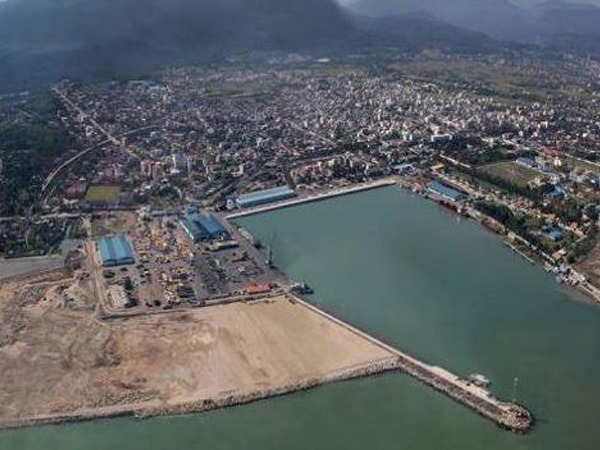India has recently signed a landmark 10-year agreement with Iran for the operation of the Chabahar Port, marking a significant step towards enhancing its strategic and economic presence in Central Asia. This deal, signed between Indian Ports Global Ltd. (IPGL) and Iran’s Port and Maritime Organisation (PMO), grants India operational control over the Shahid Beheshti terminal, a key component of Chabahar’s port infrastructure. The agreement not only aims to strengthen bilateral trade but also serves as a gateway for India to establish deeper trade connections and geopolitical relations in the region. India has a historical connection to Central Asia and Europe, evident in scriptures dating back to the 3rd century BCE, which mention trade routes and interactions with western regions, including ancient Persia and Chabahar.
Chabahar Port, located in southeastern Iran, is strategically significant for India due to its logistical advantages and proximity to the Indian Ocean. With two main terminals equipped with berths for cargo handling, including the Shahid Kalantari and Shahid Beheshti terminals, Chabahar Port provides direct access to the Indian Ocean, bypassing the contentious Strait of Hormuz. This geographical advantage allows for the accommodation of larger cargo ships, facilitating faster and safer entry, making it the closest Iranian port to India. Strategically positioned at the crossroads of South Asia, Central Asia, and the Middle East, Chabahar Port serves as an essential transit hub for trade between India and Central Asian countries, offering India a strategic edge in regional trade and logistics, particularly in circumventing routes through Pakistan.
The Chabahar Port offers India an alternative trade route to Afghanistan and Central Asia, bypassing Pakistan and reducing dependency on other trade routes. As part of the International North-South Transport Corridor (INSTC), a multimodal network linking India, Iran, Russia, and Europe, Chabahar Port plays a crucial role in reducing transit time and costs for goods traveling between these regions. India’s focus on developing Chabahar as a trade hub aims to enhance commercial ties with Iran and other Central Asian countries, providing access to the region’s abundant natural resources, including oil, natural gas, and minerals. Additionally, the port offers strategic military advantages that could enhance India’s naval footprint in the Indian Ocean and strengthen maritime security.
Economically, Chabahar Port is a game-changer for India, offering direct access to the resource-rich markets of Central Asia, Afghanistan, Russia, and Europe. By diversifying trading partners and routes, India mitigates risks associated with over-reliance on a single transit path, enhancing trade efficiency and cost-effectiveness. Estimates suggest that the INSTC route could save up to 30% in costs and 40% in transportation time, benefiting landlocked countries like Kazakhstan and Uzbekistan. Through commitments dating back to 2015 and trilateral agreements with Iran and Afghanistan, India has cemented its long-term strategic vision for Chabahar, attracting investments and fostering regional trade partnerships.
India’s operational control over Chabahar Port enhances its role in Central Asia, enabling a more significant impact on regional trade networks and countering the influence of other regional powers. The port serves as a critical node in India’s strategy to connect with Central Asian markets and resources, providing a platform for multidimensional development and economic growth. By fostering economic activities and creating job opportunities, the operationalisation of Chabahar is expected to contribute to regional stability and economic growth, aligning with India’s goal of promoting peace through economic development in the region.
In conclusion, the Chabahar Port agreement signifies a pivotal moment in India’s strategic and economic engagement with Central Asia, offering a promising future of enhanced trade, regional stability, and shared prosperity. As India continues to develop and operationalize the port, the prospects for closer ties with Central Asian markets, increased regional stability, and economic growth become increasingly tangible. This deal cements India’s position as a key player in regional trade dynamics, leveraging the strategic location and logistical advantages of Chabahar Port to reap substantial economic benefits for India and its partners.











